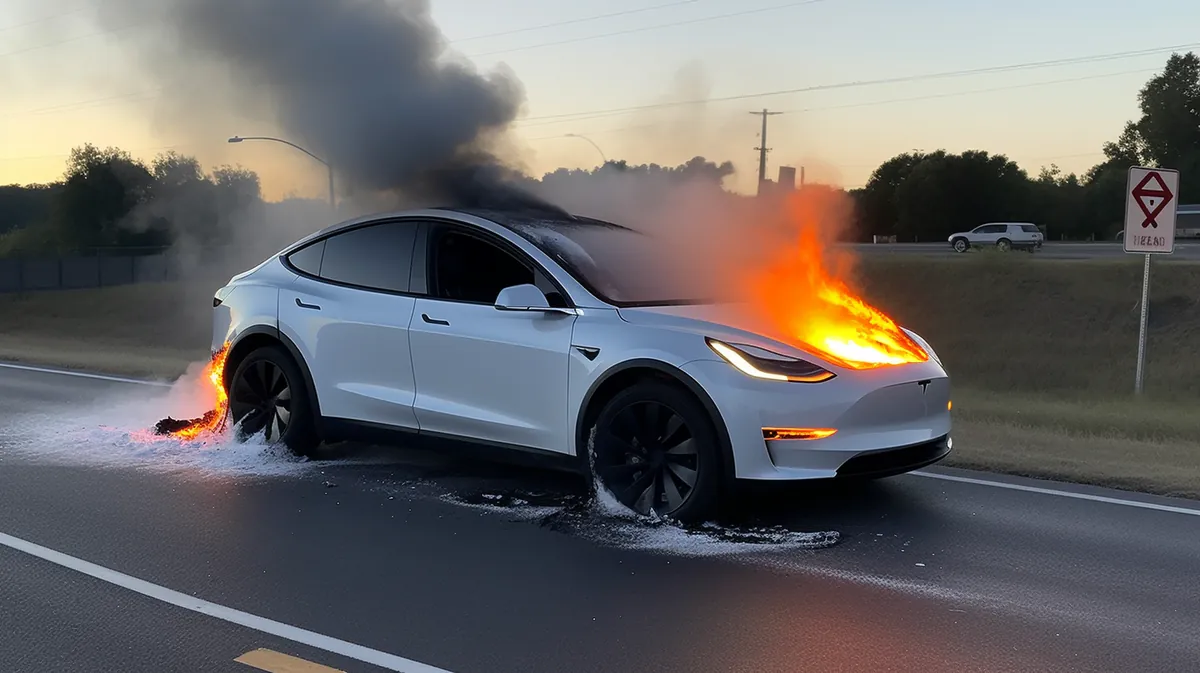In a recent incident in Tijuana, Mexico's largest city in Baja California, an electric vehicle fire has brought attention to the dangers of illegal electricity connections and the challenges of managing electric car blazes. On August 5, 2024, a Tesla, bearing California license plates, caught fire in a low-income neighborhood of this bustling border city of approximately 1.8 million residents.
The fire, which began in the Tesla, quickly spread to an adjacent unoccupied house, prompting immediate response from local firefighters. Arturo Sánchez, a firefighter at the scene, reported that the team initially received a call about a house fire. Upon arrival, they discovered that the source of the blaze was a Tesla connected directly to an overhead power line through an illegal hookup, locally known as a "diablito."
Rafael Carrillo, Tijuana's fire chief, addressed the incident on August 6, 2024, highlighting the growing concern of electric vehicle fires in the city. He explained that the Tesla's lithium-ion batteries, known for their high energy density, made the fire particularly challenging to extinguish. The fire's intensity necessitated the creation of dirt berms around the vehicle to contain the water used to douse the flames.
The incident underscores the widespread issue of illegal electricity connections in Mexican cities. These unauthorized hookups, which bypass meters and connect directly to power lines, pose significant safety risks due to uncontrolled voltage and potentially hazardous conditions. The practice costs Mexico millions of dollars annually in lost revenue.
"Electric car fires are becoming a problem for our firefighters. The partially charred hulk of the Tesla might take a couple of days to burn out completely and probably couldn't be moved until then."
This event occurs against the backdrop of Mexico's efforts to increase electric vehicle adoption and infrastructure development. Tesla, founded in 2003, has been at the forefront of the electric vehicle revolution, equipping its cars with advanced safety features, including fire protection systems. However, this incident demonstrates that even sophisticated vehicles can be compromised by unsafe practices.
Fortunately, no injuries were reported in this incident. As Tijuana continues to grapple with the challenges of urban development and its unique position as part of one of the world's busiest land border crossings, incidents like these highlight the need for improved infrastructure and public safety measures in rapidly growing cities.
